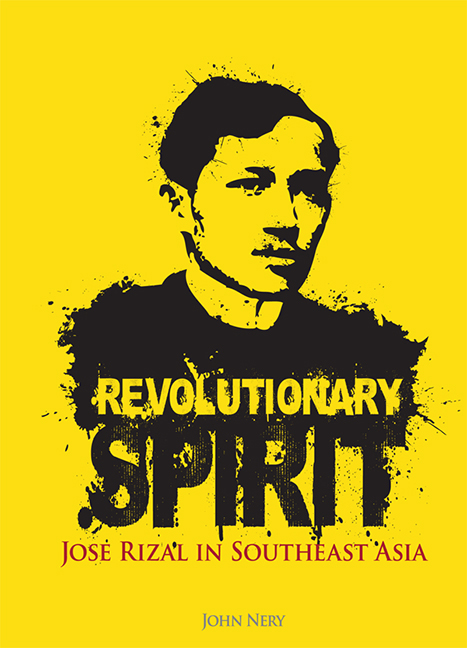Book contents
- Frontmatter
- Dedication
- Epigraph
- Contents
- Foreword
- Message
- Preface
- Acknowledgements
- INTRODUCTION The Uses of Error A Rizal Chronology
- 1 TURNING POINTS
- 2 “THE VERY SOUL OF THIS REBELLION”
- 3 DOCTOR RIZAL
- 4 “HALFBLOED”
- 5 “NO MARX OR LENIN”
- 6 UNDER THE SOUTHERN SUN
- 7 THE HOPE OF MILLIONS IN ASIA
- 8 “HIS NAME IS SWEET IN OUR MEMORY”
- 9 THE MYTH BUSTERS
- 10 “A GREAT HISTORICAL EXPERIMENT”
- Epilogue
- Appendices
- References
- Index
- Frontmatter
- Dedication
- Epigraph
- Contents
- Foreword
- Message
- Preface
- Acknowledgements
- INTRODUCTION The Uses of Error A Rizal Chronology
- 1 TURNING POINTS
- 2 “THE VERY SOUL OF THIS REBELLION”
- 3 DOCTOR RIZAL
- 4 “HALFBLOED”
- 5 “NO MARX OR LENIN”
- 6 UNDER THE SOUTHERN SUN
- 7 THE HOPE OF MILLIONS IN ASIA
- 8 “HIS NAME IS SWEET IN OUR MEMORY”
- 9 THE MYTH BUSTERS
- 10 “A GREAT HISTORICAL EXPERIMENT”
- Epilogue
- Appendices
- References
- Index
Summary
It is an intriguing possibility. On his first voyage to Europe, Rizal struck up a friendship onboard the French steamship Djemnah with two sets of Dutch sisters from the Netherlands Indies. After disembarking in Marseilles, he found to his great pleasure that the girls were staying at the same hotel, the Hotel Noailles.
Once back in the hotel with my luggage, I looked for a companion, but all the Spaniards had gone out. I hear a young voice speaking Dutch and I go out and I meet Celiene Mulder going down the stairs. I greeted her affectionately, for our conversations did not go beyond that; she does not speak anything else but Dutch. She answered me in her charming and innocent manner, and how sorry I was to see her go down and disappear. When I raised my eyes I saw the two sisters, the friends of Mulder, and I talked with them. They were on the second floor. The older, Sientje, told me that they were leaving the following day for The Hague and would live with their grandmother, but they preferred Batavia, their native country. I replied: “I too love my native land and no matter how beautiful Europe may be, I like to return to the Philippines.” [Rizal 1953a]
Rizal kept a diary, on and off, for many years. In each of his major trips, he used the diary (and several well-chosen letters) to document his impressions, to keep a record of the journey. His six-week voyage to Europe in 1882, the first time he travelled outside the Philippines, was particularly well-documented; to the boundless enthusiasm of the eager tourist was joined the pre-ironic introspection of the earnest student. The day after disembarking in Marseilles, he chanced upon the family of the younger Dutch girls preparing to leave the hotel. As he later noted in his diary, his emotional vulnerability made him hesitate.
- Type
- Chapter
- Information
- Revolutionary SpiritJose Rizal in Southeast Asia, pp. 103 - 121Publisher: ISEAS–Yusof Ishak InstitutePrint publication year: 2011



